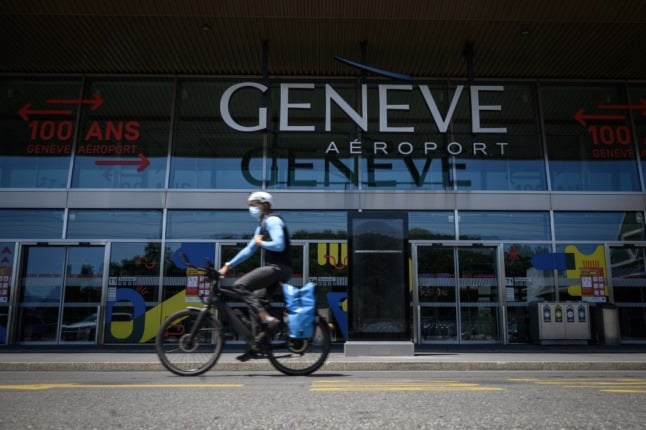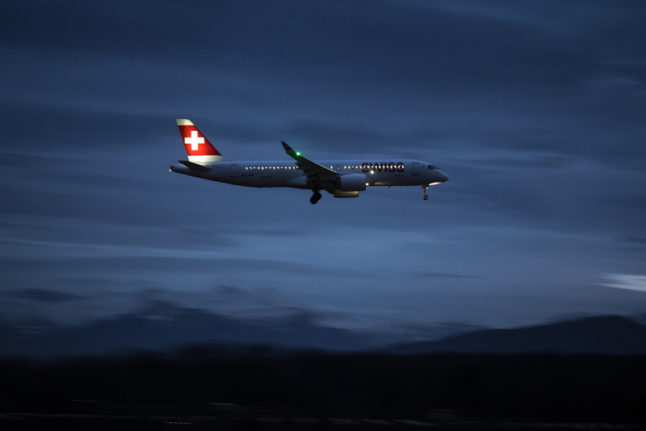Switzerland will tighten Covid measures amid a worsening situation in the country, the government announced on Friday afternoon.
The measures will apply from Monday, December 20th.
Among the measures, which include stricter rules for bars and restaurants, nightclubs, discos and private events, is a relaxation of the current rules relating to arrivals in the country.
From December 20th, the entry rules will be relaxed, whereby people only need to show one test on entry (either PCR or antigen).
The PCR test can be up to 72 hours old, the antigen test must be less than 24 hours old.
READ MORE: Switzerland announces new Covid measures
The current rules (i.e. before the announcement) mandated that a PCR test must be shown.
The rule whereby arrivals must show another test 4-7 days after arriving will be relaxed for vaccinated and recovered people.
If you have not been vaccinated or have not recovered from the virus, then you will need to complete an additional test between days four and seven after arriving. This can be either a PCR or antigen test.
The measures are in place until at least January 24th, 2022, although as has been the case previously, they are subject to extension should the Covid situation warrant it.
What are the exceptions?
There are several exceptions to the testing rule. People under the age of 16 do not need to be tested.
People who have recovered from the virus in the past month – and have proof – must have no symptoms and provide a negative antigen test. More info is available here.
Arrivals who are transiting through Switzerland via air or land do not need to provide a test result.
The requirement applies to arrivals from all countries and applies regardless if you have Swiss citizenship, residency or if you do not.
People from border regions however will not need to comply. Border regions are defined as follows:
Germany: State of Baden-Württemberg and State of Bavaria.
France: Regions Grand-Est, Bourgogne / Franche Comté and Auvergne / Rhône-Alpes.
Italy: Piedmont, Aosta Valley, Lombardy and Trentino / South Tyrol regions.
Austria: Land Tirol and Land Vorarlberg.
Territories in Liechtenstein: entire Principality
Where can I get a test – and how much do they cost?
Fortunately, testing is common place in cities, towns and villages throughout Switzerland, while most airports and major transport hubs also have testing facilities.
Pharmacies, general practitioners and hospitals have testing facilities, while private facilities also exist across the country.
The tests can either be PCR or antigen (lateral flow) tests. Self tests are not sufficient.
Depending on the provider, PCR tests cost approximately CHF 110 (€100), or CHF 195 (€175) for rapid PCR tests.
Antigen tests cost approximately CHF 45 (€ 40).
The costs of all tests need to be covered by the travelling/arriving/returning person, regardless of citizenship status.
Official information is available from the Swiss government here.
What happens if I arrive without a test?
The Swiss government notes that you will be asked by airline providers for your PCR test before you board, so the chance you arrive without a test is unlikely.
However, if you do arrive without a PCR test and are required to have one, you will be liable for a 200CHF fine.
“The person must also be tested immediately after entering the country and inform the canton,” the government said in a statement.
Therefore, not only will you have to pay the fine, but also for a PCR test in Switzerland, which is likely to be much more expensive than in your country of departure.



 Please whitelist us to continue reading.
Please whitelist us to continue reading.
Anxiously hoping that these rules are not tightened before Christmas ….
Does the relaxation of the Day 4-7 test after arrival apply to people who arrived before 20 December? Or do they still have to take a test?
Only people arriving from today are exempt, called the bag.ch helpline today to get official answer to this very question.